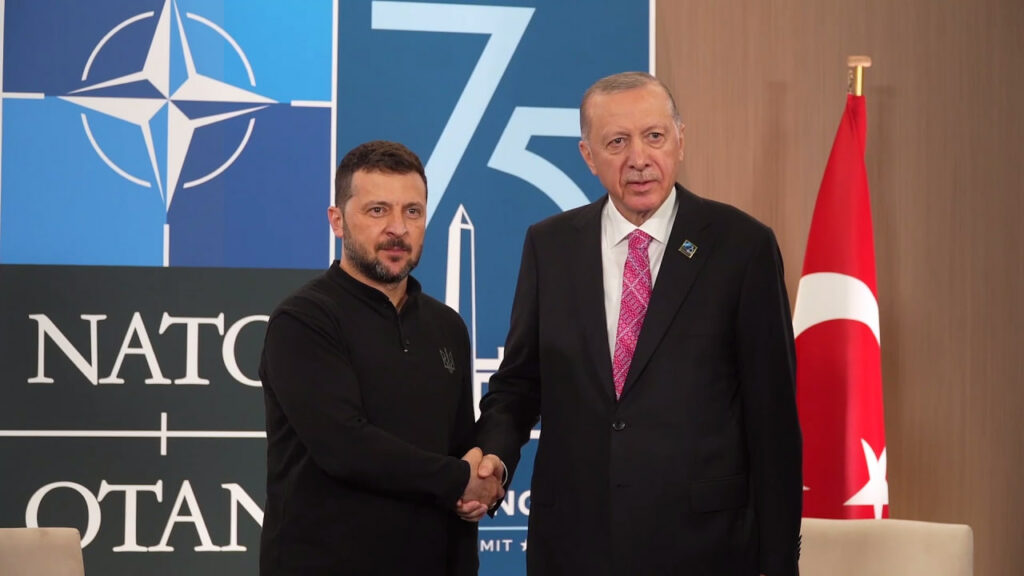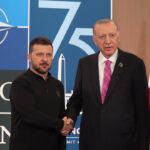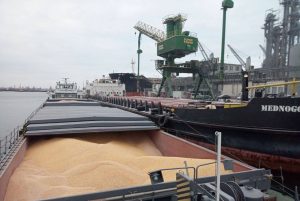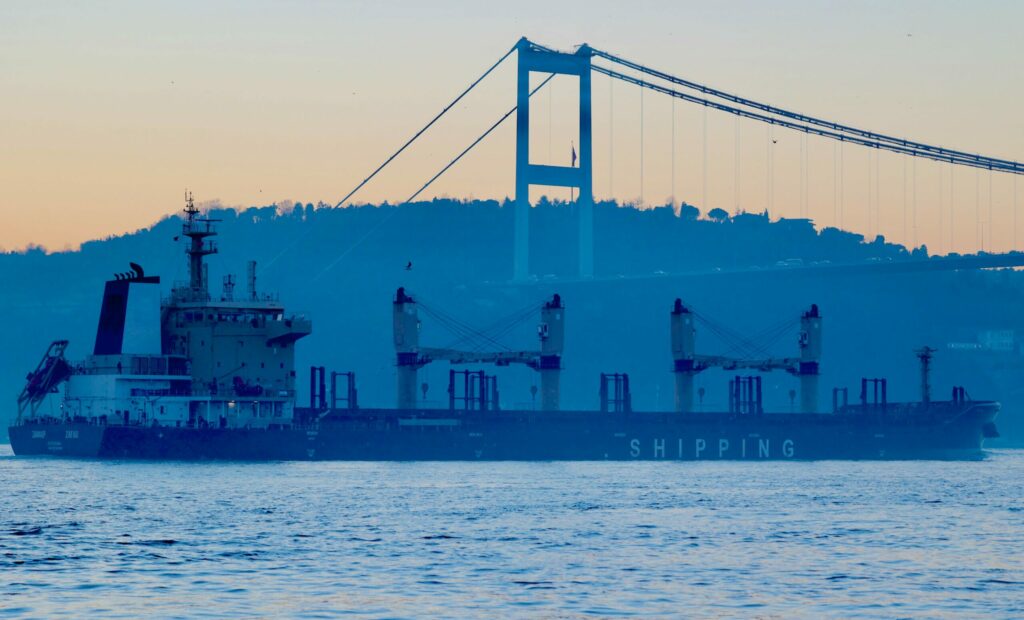Turkey once again fantasizes about restoring the Grain Agreement

During the meeting with the President of Ukraine Volodymyr Zelenskyy, the President of Turkey once again announced the work on the revival of the Black Sea Grain Initiative.
USM considers whether Ukraine needs this, and why such statements are being made despite the successful operation of the maritime corridor.
Already this morning in the news, we saw the headlines: “Turkey is working to restore the Black Sea Grain Initiative.” The Office of the Turkish President wrote on the X social network:
“During the meeting, President Erdoğan stated that Turkey continues its efforts to end the Ukrainian-Russian war with a just peace, and that work has begun to restore the Black Sea Grain Initiative. Erdogan also said that Turkey is ready for any initiative, including mediation, to lay the foundation for peace.
It should be emphasized right away that this is not the first time Erdogan has made such statements. So what is it? Real plans or ordinary populism?
But before that, a little trailer. There is not a single word about the Black Sea Grain Initiative in the Telegram channel of the President of Ukraine, Volodymyr Zelenskyy. Instead, it is about other important issues:
“We are preparing to hold a conference in Turkey dedicated to food security and freedom of navigation within the framework of the implementation of the decisions of the Peace Summit,” the post reads.
Motives of Turkey
The first, and probably the main, reason why Erdogan wants to restore the trilateral Grain Agreement is to show that Turkey is the main mediator in the relations between Moscow and Kyiv, and therefore has a significant political influence on the world stage.
At the same time, Erdogan is trying to maintain good relations with both the Russian Federation and Ukraine, since both countries are important trading partners of Turkey.
It is also worth looking at the numbers. Perhaps also thanks to the Grain Agreement, Erdogan wants to get certain preferences from the West. In March of this year, Reuters wrote that exports from Turkey to Russia fell by 33% in a year against the background of Western sanctions. Of course, Turkey is not entirely satisfied with this situation, and the restoration of the Grain Agreement can serve as an opportunity to weaken the impact of sanctions on exports and imports between Turkey and the Russian Federation.
The second reason is to prevent an increase in food prices, which may have an impact on the economy in Turkey.
The first Grain Agreement came at a time when there was an unstable crop situation in the world, and the Russian Federation had blocked Ukrainian sea exports since the beginning of a full-scale war. As a result, the prices of agricultural products in the world have increased, but since the Grain Agreement began to work, it has slightly improved the situation on the market of agricultural products throughout the world, in particular in Turkey.
Erdoğan is probably counting on a similar effect now, but it may not work due to several factors. First of all, Ukraine now successfully exports by sea, in particular, it reached pre-war indicators, and therefore the restoration of the Grain Agreement will not affect the value of agricultural products. Secondly, this year the volume of grain production in the world will reach a new record level, which in turn will also affect the price reduction.
Achievements of Ukraine
As of July 9, 2024, more than 2,000 ships have passed through the Ukrainian maritime corridor, exporting more than 56 million tons of cargo.
The Navy of the Ukrainian Armed Forces also said that over the past six months, it has been possible to expand the capacity of the Ukrainian maritime corridor. In particular, there is no danger of remote mining.
So, in April of this year, exports from the ports of Great Odesa reached the pre-war level. And all this became possible only thanks to the sea corridor.
At that time, the permanent representative of Ukraine at the UN, Serhiy Kyslytsia, said that in total, at that time, 25 million tons of Ukrainian agricultural products were exported from the ports of “Pivdennyi”, “Odesa” and “Chornomorsk”.
“This exceeds the volume of exports for the entire year of operation of the Black Sea Grain Initiative,” Serhii Kyslytsia noted at the time.
The restoration of the Grain Agreement may mean degradation for Ukraine, as the Russians constantly interfered with inspections of ships in Istanbul, sabotaged the work. Also, the question of the nomenclature of goods cannot be ignored, since the agreements with Russia only dealt with the export of grain.
So what does UN say?
It is worth recalling that the first Grain Agreement took place under the auspices of the UN.
At the end of 2023, UN Secretary General Antonio Guterres said that the UN does not see the point in reviving the Black Sea Grain Initiative, in which the terrorist country participated.
Already in January 2024, the spokesman of the UN Office for the Coordination of Humanitarian Affairs, Saviano Abreu, stated that the UN does not consider the Ukrainian maritime corridor in the Black Sea to be stable and predictable.
“The Black Sea Initiative was a system that guaranteed the safety of ships entering and leaving. Unfortunately, after its termination, we again saw an increase in mine pollution in the Black Sea. And we saw the level of attacks on Ukrainian ports, including on the Danube River, which could be alternative,” Abreu emphasized at the time.
Regarding the safety of shipping, it is worth reminding that at the beginning of July, three NATO countries Turkey, Romania and Bulgaria started demining the Black Sea. In particular, this initiative is aimed at protecting the Ukrainian maritime corridor.
What next?
In fact, it is a bit strange to expect a renewal of the Grain Agreement now. It is not beneficial for Ukraine and business, and even more so for the world and countries that import Ukrainian food.
Turkey, undoubtedly, has its own personal interest, but Ukraine should definitely not pay attention to it.
It cannot be ruled out that, theoretically, the renewal of the agreement would make the work of the ports a little easier (since the first agreement stipulated that Russia would not attack them). But we should not forget that we are dealing with an aggressor country that keeps neither its word nor the laws and customs of warfare.





